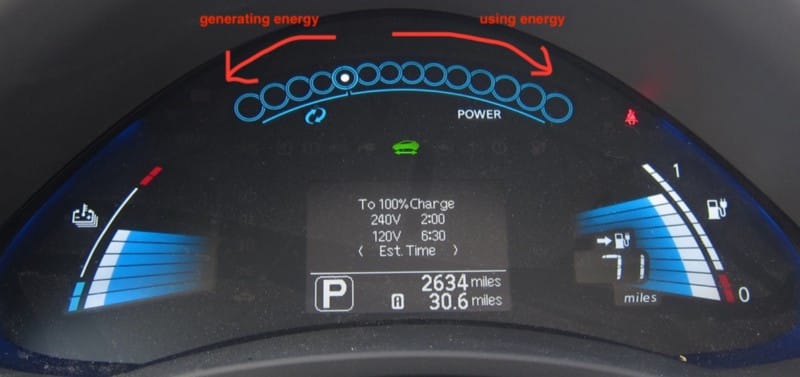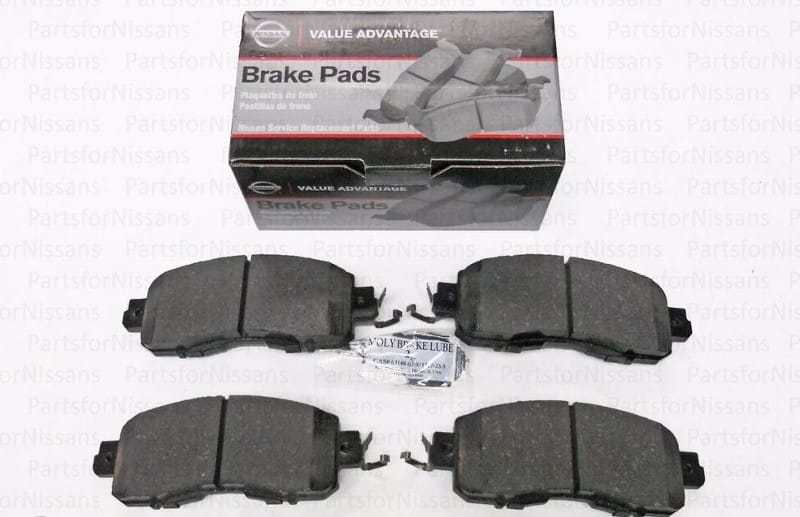EV Q&A — If I go up a hill, do I gain power when I go down?
25 May 2019
The car’s motor will slow down the car when you take you foot off the accelerator, and the byproduct is electricity which flows back into the battery. Technically termed Regenerative Braking, or Regen, this happens automatically (and silently) while you drive. It’s not something you think about.
 The ‘dots’ indicate the level of energy consumption or generation
The ‘dots’ indicate the level of energy consumption or generation
When you drive down a large hill like Ngauranga Gorge (in Wellington) you certainly notice that your battery percentage rises by a few percent. It’s not a massive gain, but every little bit counts.
You will also benefit from regen in stop/start traffic. You’ll recover some energy, but it’s also easier on the driver. Less need for alternating your foot between accelerator and brake.
Increased Regen
On most electric cars, the level of ‘regen’ is configurable. On our Nissan Leaf, we can choose either D (drive) mode which has a smaller level of regen, and B (braking) mode which has a higher level of regen. As we live on a hill, we normally drive with the higher B mode.
A side effect of the higher regen is that you very rarely need to use the brakes. When you take you foot off the accelerator, the car slows down enough. It’s only if you need to come to a complete halt, that you might press the brake.
The new ‘version 2’ Nissan Leaf has a feature called ‘one pedal driving’ which takes this even further. When enabled, as you take your foot totally off the accelerator, it will fully engage the regenerative braking and also apply the ‘actual brakes’ as well.
Reduced wear and tear
With the vastly reduced need for braking, the brake pads/discs on electric cars very rarely need replacing. Depending on driving conditions, an EV may never have them replaced.

The cost to replace a set for a standard car (and EV) is around $250 every 50,000 kms. That could add up to $1,000 over the life of the vehicle.
Summary
Regenerative braking recovers energy when driving down a hill, decelerating and in stop/start traffic. The extended life of the brake pads will save you money over the life of the vehicle.
Related posts
- Cheaper EV coming to NZ from MG
- Battery upgrades for older Nissan Leafs
- Driving from Taupo to Wellington in an EV
- Driving to Whakapapa in a Nissan Leaf
- New electric van in NZ
- EV Q&A: Sounds eco-friendly in that it doesn’t use fossil fuel, but what about the batteries?
- EV Q&A: Is it gutless on the hills?
- EV Q&A — Is this EV thing just a fad or is it here to stay? Got evidence?
- EV Q&A —Charging: do you need a special plug at home?
- EV Q&A — Do the cars cost more than petrol cars?
- Traveling to Palmy in an Electric Vehicle